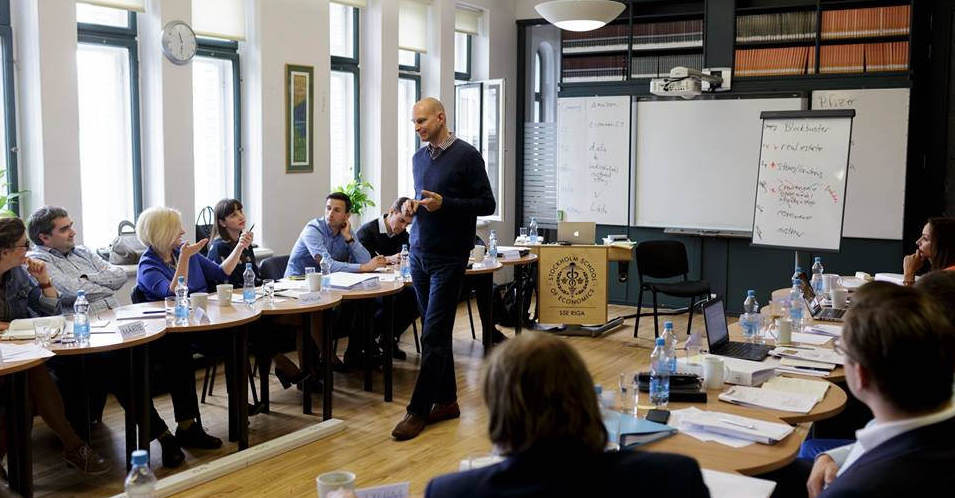 WDI’s executive education programs, delivered in partnership with the Stockholm School of Economics (SSE) in Riga, are attracting more international participants, bringing diverse opinions to the classroom and thereby adding value to the programs.
WDI’s executive education programs, delivered in partnership with the Stockholm School of Economics (SSE) in Riga, are attracting more international participants, bringing diverse opinions to the classroom and thereby adding value to the programs.
In past years, participants in the executive education offerings from WDI’s Education initiative at SSE Riga are citizens of host country Latvia and one or two neighboring Baltic countries. But for this year’s spring programs – the flagship, 10-day Strategic Management Program (SMP), Supply Chain and Logistics Management and Advanced Negotiations – drew participants not only from Latvia but also Russia, Chile, Estonia, Lithuania, Germany, Ukraine and even from as far away as Canada.
Santa Zeidaka, program manager at SSE Riga, said a key selling point is that its offerings are highly ranked in the Nordic and Baltic regions. She also said SSE Riga leverages its alumni network to spread the word on its programs and promotes them at conferences and on social media.
Zeidaka said a more international classroom benefits all the participants.
“Having an international group helps people open up more,” she said. “Participants get to see the problems from more diverse perspectives and this pushes participants to open their minds more, which is valuable when people work in international companies.”
For the popu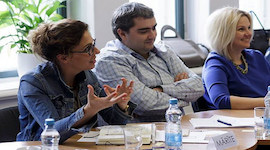 lar SMP – also known as a “mini MBA” – participants came from Latvia, Lithuania, Ukraine and Canada. The program, tailored for high potential, mid- to senior-level managers, features four modules – strategy, finance, marketing, and leadership – and is structured around an integrative strategic framework. The program, held in May, combines lectures, discussions, cases and exercises. Participants also conduct group work, which enhances their critical thinking, decision-making and teamwork skills.
lar SMP – also known as a “mini MBA” – participants came from Latvia, Lithuania, Ukraine and Canada. The program, tailored for high potential, mid- to senior-level managers, features four modules – strategy, finance, marketing, and leadership – and is structured around an integrative strategic framework. The program, held in May, combines lectures, discussions, cases and exercises. Participants also conduct group work, which enhances their critical thinking, decision-making and teamwork skills.
Amy Gillett, vice president of WDI’s Education Initiative, said the fact that the SMP drew participants from four countries speaks to its strong reputation. She said participants around the world are recognizing the great value of this program.
“The Strategic Management Program is greatly enriched by having such a global audience,” she said. “Since the program is highly interactive with participants sharing their experiences, these diverse viewpoints spark new ideas and connections. Next year, we expect to attract participants from even more countries.”
This article traces the development of management education in Central and Eastern Europe over the past 30 years and provide recommendations for the future of management education in this part of the world. The authors, Danica Purg and Alenka Braček Lalić of IEDC-Bled School of Management, identify emerging business issues in Central and Eastern Europe and the resulting opportunities for institutions in the region to respond to these challenges with appropriate management and leadership development.
This article is part of the 25 Years of Market-Based Solutions article series released in honor of the William Davidson Institute’s 25th anniversary. Since its founding in 1992, the Education Initiative at the William Davidson Institute has helped management education institutions around the world develop their capacity. We look forward to continuing this work — and sharing key learnings — over the coming decades.
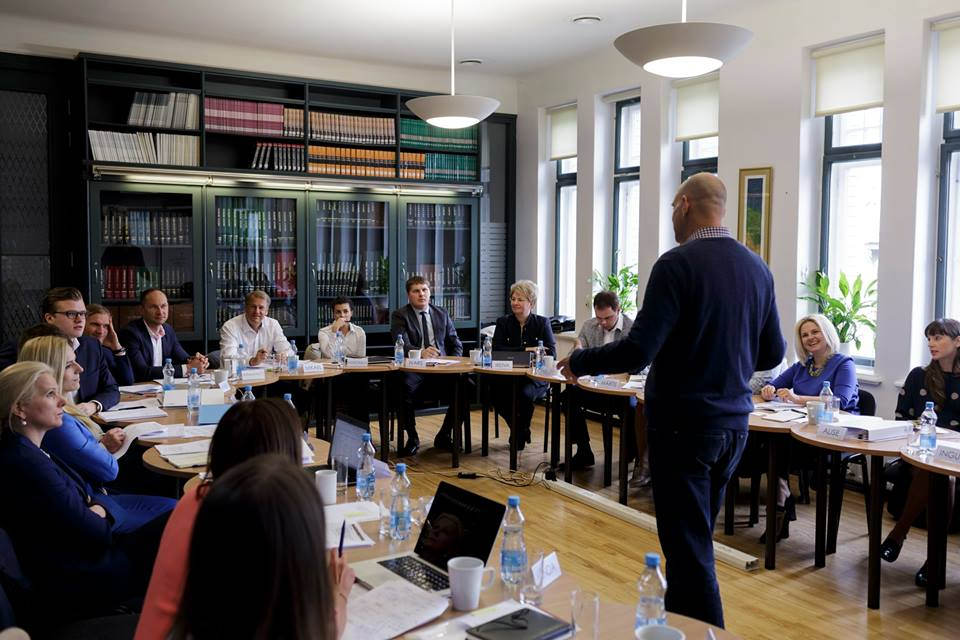
WDI Faculty Affiliate John Branch teaches a marketing module during the 2016 Strategic Management Program in Latvia.
Soon after Robert M. Teeter’s death in 2004, the WDI Board of Directors established a scholarship program in his honor to allow owners and managers of small- and medium-sized enterprises in emerging economies to attend the Institute’s professional education programs for free. Teeter was an advisor to several U.S. presidents and a former WDI board member.
Each year, 20 scholarships are handed out to worthy recipients. Recently, WDI’s Education Initiative spoke with four who attended WDI programs in 2016 to see how they and their organizations were impacted by the sessions. Three attended WDI’s 10-day Strategic Management Program (SMP), and one participated in an inaugural program on Strategic Thinking. Both programs were held at the Stockholm School of Economics in Riga, a longtime partner of WDI Education.
Read the full article and profiles of the four participants here.
Dovilė Pranckevičienė of Lithuania is the co-founder and director of a foreign language training school. “My knowledge was very narrow,” she said. Attending the SMP “was really an eye-opener for me, one who had no background in business management.” She said she “gained a lot of knowledge in a short period of time.”
Aleksandrs Lescinskis has his own law firm in Latvia and also manages a Judo studio and a sports association. He liked the SMP’s condensed timeframe and collaborative atmosphere.
“During a short period of time – two weeks, four modules – you can share your existing experience with professors and colleagues, looking at the same things from different angles, broadening your perspective,” he said. “We are working in different areas, but during this course we can find similar things to discuss, to share. I had to a chance to find out new things, to have new colleagues, new professors, to have communication. All things will help me in the future to go further.”
Santa Krastiņa of Latvia attended WDI’s first Strategic Thinking program. As a leader of an environmental NGO, Krastiņa said she immediately put to work what she learned. Krastiņa shared her training with her colleagues at her organization, and expects their new knowledge to positively impact how they work with partners and how they approach new markets.
“We have a lot to think through about our future – how we will fund ourselves, how we will survive,” she said.
Krastiņais is optimistic the training she received from WDI will help her organization accomplish great things.
“I got new knowledge to put into practice [with] my co-workers,” she said. “Together, we will find a solution.”
WDI Education begins 2017 looking forward to the 12th year of partnership with the Stockholm School of Economics in Riga (SSE Riga), the top business school in Latvia. As we anticipate this year’s WDI Professional Education programs in Riga, we want to highlight a few of the managers who benefitted from these programs in 2016 thanks to the Teeter Scholarship program.
The scholarships are named in memory of the late Robert M. Teeter, an advisor to U.S. presidents from 1968-1992 and a former WDI board member. WDI awards 20 full tuition scholarships annually to managers from small- and medium-sized enterprises and NGOs in emerging markets to attend WDI Professional Education programs. The scholarships allow owner/managers who otherwise would be unable to afford quality professional development opportunities to attend WDI training sessions at no cost.
Participants in WDI-SSE Riga programs mainly represent large local and regional companies. By including SME owner/managers and NGO directors, programs gain important diversity and advance WDI’s mission.
Of the four 2016 Teeter Scholars profiled below, three attended May’s Strategic Management Program (SMP), the 10th year of this flagship program, and one attended WDI-SSE Riga’s inaugural Strategic Thinking program. Here are their stories:
Irēna Ļeoņenko (Latvia): Connecting companies through HR
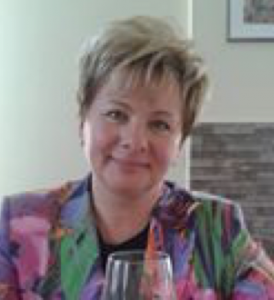 Irēna Ļeoņenko started working as an interpreter in a hotel right out of university. Her hard work and potential for excellence shone through, and in 2001 she moved into an HR role.
Irēna Ļeoņenko started working as an interpreter in a hotel right out of university. Her hard work and potential for excellence shone through, and in 2001 she moved into an HR role.
Today, she heads the Latvian Association for People Management (LAPM), an NGO with 230 company members LAPM organizes activities to increase the competencies of HR managers and specialists – such as seminars, experience exchanges, and an annual conference (last year’s topic was “Lifelong Learning”). LAPM provides resources and networking for HR professionals, and serves businesses and state and municipal agencies. Its vision, ultimately, is to “be the best developer of ideas and opinion leader in the HR management field in Latvia.”
This is a new direction for the organization. Implementing such an ambitious vision requires strategic, savvy leadership. Ļeoņenko knows she has some work to do. She notes that one of the main challenges is changing the culture of HR. Historically, in Soviet times in Latvia, HR’s function was solely administrative, secretarial, and bureaucratic. She notes that a lot of companies in Latvia still operate with this paradigm today – excluding developed international firms.
Since LAPM is working on its strategy for the next three years, Ļeoņenko said the SMP came at a “good time for me to refresh and get new knowledge.” With the SMP’s tools, Ļeoņenko will help LAPM get to where it wants to be: promoting the value of the HR profession within a market context.
The SMP, she said, exposed new areas for her to consider in pursuit of this vision – in particular, marketing, finance, and how everything comes back to strategy.
The SMP’s subject areas “are core elements for any type of activities, whether business or non-governmental organizations,” Ļeoņenko said. “For leaders in organizations, it is extremely important [to] not only work on a good feeling basis, but be real professionals – to have knowledge on how to model, on how to evaluate, on how to take decisions. [The SMP’s] systemic approach helps you to understand the pluses and minuses, the strengths and shortcomings to make analysis in the right way and come to conclusions that help you to go ahead.”
Dovilė Pranckevičienė (Lithuania): From Lawyer to Entrepreneur
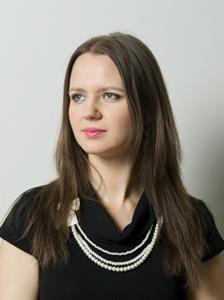 Dovilė Pranckevičienė is the co-founder and director of “LANGUAGE CLUB,” a school in Lithuania that provides General English language training as well as professional and other foreign language training mostly to employees of international or local companies in groups or individually. The school was established in 2013. Already, the young business has done well.
Dovilė Pranckevičienė is the co-founder and director of “LANGUAGE CLUB,” a school in Lithuania that provides General English language training as well as professional and other foreign language training mostly to employees of international or local companies in groups or individually. The school was established in 2013. Already, the young business has done well.
Like her SMP classmate Ļeoņenko, Pranckevičienė did not start out in management. After earning a law degree, Pranckevičienė practiced as an international lawyer. But as is the case for many who become entrepreneurs, she got the itch to do something on her own. Now she heads a staff of 30 people who provide English language services for non-native speakers.
Her company is now well established, and Pranckevičienė said the SMP is immensely applicable to this stage of her business. For instance, the Leadership module made her realize that her company operated without a vision or mission for three years. “I had it in my head, but it was never written or stated anywhere,” she said. This module helped her realize this was important to do.
The Marketing module taught her how to evaluate markets, which helps her shape the direction her language school should take. Finally, after the Strategy module, Pranckevičienė began to see the ways that strategy and marketing work together, and thus the importance of market research and planning as opposed to a trial-and-error method of pursuing growth.
“My knowledge was very narrow,” she said. “That was really an eye-opener for me, (as) one who had no background in business management.”
Pranckevičienė said the SMP boosted her business learning: “I gained a lot of knowledge in a short period of time. It’s nice when you have case studies and discussions and can then try to apply this knowledge. I would definitely recommend [this program].”
“Before taking this program, my main goal was to deepen my knowledge and, furthermore, gain new knowledge in many business areas which might improve my executive skills as well as strengthen my leadership skills and help in the future with managerial work,” she said “This program exceeded my expectations.”
Aleksandrs Lescinskis (Latvia): Active learning for active interests
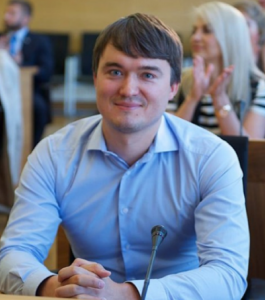 Aleksandrs Lescinskis’ entrepreneurial journey began when he opened his own judo studio at 18. After a sports career, he earned degrees in law and finance and opened his own law firm. He is a self-employed provider of legal services while still managing the studio (Judo Club Dinamo LAT), running educational and summer camps, and directing the Sports Association of Latvia, which he founded to provide legal consulting, seminars, and conferences on sports law throughout Latvia.
Aleksandrs Lescinskis’ entrepreneurial journey began when he opened his own judo studio at 18. After a sports career, he earned degrees in law and finance and opened his own law firm. He is a self-employed provider of legal services while still managing the studio (Judo Club Dinamo LAT), running educational and summer camps, and directing the Sports Association of Latvia, which he founded to provide legal consulting, seminars, and conferences on sports law throughout Latvia.
With all of these pursuits at play, Lescinskis is a nontraditional entrepreneur who wears several hats. Though his legal education provides some understanding on business efficiency, he said, he recognizes his organizations present varied challenges. So he put his sports training to use and practiced active learning by attending the SMP as a Teeter Scholar.
At the SMP, Lescinskis learned the importance of understanding finance and strategic leadership for developing his sports club, which currently trains around 200 kids and recently was named “the best children’s and youth sports organization in 2015 in Riga City” by the Rīga City Council’s Education, Culture and Sports Department. In order to achieve his goals to reach 1,000 members, acquire a modern building, build expertise, and introduce IT systems, Lescinskis knows he must take his management skills to the next level. As for improving his legal businesses, he came away from the SMP with explicit goals and a clear vision to start with marketing, positioning, and looking for new markets. He knows what he needs to do to strategize his organizations’ development; what’s left is to implement it: “[Now] I have a clear plan,” he said.
Besides a greater understanding of strategic management principles, Lescinskis came away from the SMP with broader perspective and a stronger network. He praised the SMP’s concentrated timeframe and collegial atmosphere.
“During a short period of time – two weeks, four modules – you can share your existing experience with professors and colleagues, looking at the same things from different angles, broadening your perspective,” he said. “We are working in different areas, but during this course we can find similar things to discuss, to share. I had to a chance to find out new things, to have new colleagues, new professors, to have communication. All things will help me in the future to go further.”
An entrepreneur like Lescinskis, who has managed organizations without introductory business training, is the kind of manager the SMP is designed to train. He is an ambitious entrepreneur who has followed a nontraditional path to building a business and needs some concentrated training to more effectively implement a vision.
Santa Krastiņa (Latvia): Strategically strengthening the nonprofit sector
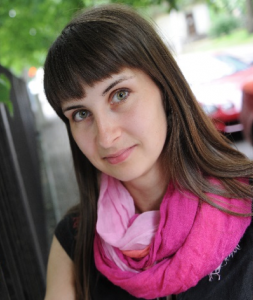 Santa Krastiņa brought an atypical background to November’s Strategic Thinking program. Krastiņa leads homo ecos:, an environmental NGO whose mission is “to create and strengthen a social movement that not only promotes environmentally friendly ideas, but also puts them into practice and lives them out through activities that are beneficial for both the environment and humans.” Homo ecos: promotes wide everyday use of environment- and human-friendly materials and technologies. It provides training and resources to citizens on green lifestyle, climate change, reducing food and packaging waste, and promoting use of environmentally friendly materials.
Santa Krastiņa brought an atypical background to November’s Strategic Thinking program. Krastiņa leads homo ecos:, an environmental NGO whose mission is “to create and strengthen a social movement that not only promotes environmentally friendly ideas, but also puts them into practice and lives them out through activities that are beneficial for both the environment and humans.” Homo ecos: promotes wide everyday use of environment- and human-friendly materials and technologies. It provides training and resources to citizens on green lifestyle, climate change, reducing food and packaging waste, and promoting use of environmentally friendly materials.
“Our aim is to raise awareness about our impact on environment with each decision,” she said. “We have made guidebooks about these topics to help organizers to be more environmentally friendly.”
As executive director, Krastiņa spends a lot of time thinking about homo ecos:’ strategic direction and how to align its activities and resources with its vision. A major challenge is financial sustainability. When revenue is reliable, she said, it is easier to keep the organization aligned with its mission and to retain strong employees in a competitive job market.
“We want to develop [social enterprise] services (such as educational events) but not lose focus on our aim,” Krastiņa said.
Though this tension is not unusual for NGOs, its leaders rarely address it through executive training on Strategic Thinking or management. (As a side note: WDI is pleased to deliver an NGO program that addresses this need.)
By attending the Strategic Thinking program alongside managers of for-profit firms, Krastiņa said she learned from the problems the business sector encounters, as well as how her colleagues develop ideas and solutions. She also has more tools to forge strategic partnerships across sectors – including with traditional, for-profit firms. Finally, Krastiņa noted, the program pushed her to take an internal look at what is driving homo ecos: and how this drive serves employees’ needs and meets ethical guidelines. The strategic framework provided by WDI Faculty Affiliate Doug Bosse, who led the program, was a great asset in pursuit of those goals.
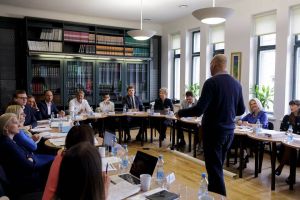
WDI Faculty Affiliate John Branch facilitates the 2016 Strategic Management Program at the Stockholm School of Economics in Riga, Latvia.
Krastiņa has already shared her training with her colleagues at homo ecos:. She expects this to impact how they work with partners, as well as how they approach new markets.“We have a lot to think through about our future – how we will fund ourselves, how we will survive,” she said.
Krastiņa is optimistic that the training will aid her efforts.
“I got new knowledge to put into practice [with] my coworkers,” she said. “Together, we will find a solution.”
________
Thanks to the Teeter Scholarships, SME owner/managers from across the Baltic region can invest in sustainable, long-term strategies for their organizations to scale and grow.
WDI’s Education Initiative is celebrating the 10th anniversary of its popular, intensive two-week Strategic Management Program – also known as a “mini-MBA” – at the Stockholm School of Economics in Riga, Latvia (SSE Riga).
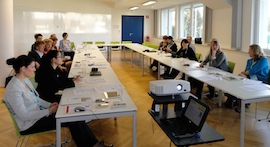
The program, tailored for high potential, mid- to senior-level managers, begins today (May 9). But before the 21 participants arrive in Riga, they will have taken part in two e-learning modules on competition and finance, custom-designed for this program by WDI.
“The e-learning modules give an excellent overview on finance and competition, and get the participants thinking about strategic issues at their organizations before they arrive,” said Amy Gillett, Vice President of WDI’s Education Initiative. “The online modules also allow participants to learn as their schedule permits, and we can provide them more content without more time away from work.”
The Strategic Management Program (SMP) features four modules – strategy, finance, marketing, and leadership – and is structured around an integrative strategic framework. The sessions present both foundational general management principles and the recent business management theory.
Additionally, participants from Fortune 500 companies, small businesses, and nonprofits grapple with real situations faced by their peers in their own business environments.
The program combines lectures, discussions, cases, and exercises. Participants also conduct group work, which enhances their critical thinking, decision-making, and teamwork skills.
WDI has organized the program annually since 2007 in cooperation with SSE Riga. Past participants have come from Latvia, Estonia, Vietnam, Russia, and Lithuania. The program is conducted in English.
Three of the participants – from Lithuania, Estonia, and Latvia – are attending the program free of charge as WDI Teeter Scholars, named in memory of Robert M. Teeter, an advisor to U.S. presidents from 1968-1992 and a WDI board member. Through the scholarship program, WDI awards 20 full-tuition scholarships annually to managers from small- and medium-sized enterprises and NGOs in emerging markets to attend WDI Professional Education programs.
“The Strategic Management Program features leading faculty delivering the latest cutting-edge tools to managers, and providing them new ideas and strategies that they can apply at their organizations,” Gillett said.
This year’s SMP faculty include: